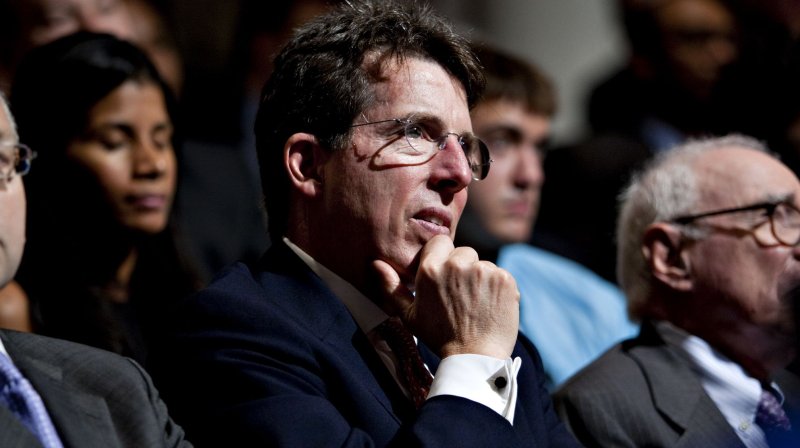Former Barclay's chairman Bob Diamond resigned after charges that the company manipulated Libor rankings. UPI/Daniel Acker/Pool |
License Photo
Regulators in Britain are now coming under fire for a failure to act early in the Libor manipulation scandal that already cost a few bankers their jobs.
Barclays Chairman Marcus Agius sought to absorb the brunt of the public reaction by resigning and declaring the buck stops here and whatever happens on my watch is my responsibility, paraphrasing his statements. Not long after that, Barclays Chief Executive Officer Robert Diamond was on his way out the door. It turns out theft by bankers is not very well received.
From the moment the news broke that Barclays had agreed to pay $450 million to settle regulatory charges of Libor manipulation, there have been suggestions other banks would be caught up on the scandal, as well.
"It wasn't just the fault of banks. The Financial Services Authorities should have picked up on the irregularities," The New York Times quoted Conservative Member of Parliament Mark Garnier as saying.
There is, apparently, cause for this logic, given the FSA was informed the Libor was being mishandled back in 2007 and waited to investigate until 2010.
That says the issue was not considered a major concern or simply had to wait its turn behind other pressing matters. After all, 2007-12 has not been the easiest half-decade for banking regulators around the globe.
But the Libor case is serious enough for Barclays at the moment and should be equally serious for other banks found to be juggling their numbers to influence the Libor, which is the average borrowing rate among major banks lending money to each other. However, should regulators uncover collusion between banks to coordinate their manipulations, that is simply the difference between rubbing two sticks together and a nuclear power plant. If there was a conspiracy to manipulate the lending rate beyond the self-serving, collegial behavior at Barclays, the industry would be in serious trouble. Theft by opportunity is one thing; theft by determined design is quite another.
This brings the argument back to regulators and their role in the greater scheme of things.
British Chancellor of the Exchequer George Osborne said the regulator system "failed spectacularly in its mission to maintain stability."
That's about right. Regulators are in charge of watching over banks, not the economy, but the Libor is certainly a cornerstone of the economy, like the switch on a train track. It is the benchmark rate for trillions of dollars in consumer and business loans.
It is supposedly safeguarded by process: A bank association tosses out the high and low numbers it receives from banks and averages out the rest. Due to that, it would take more than one bank to seriously affect the Libor, which stands for the London inter-bank offered rate. How far the spectacular failure goes, however, has yet to be seen.
Japanese markets were closed for a holiday, but the Shanghai composite index in China fell 1.74 percent. The Hang Seng index in Hong Kong held its own, up 0.15 percent, while the Sensex in India fell 0.64 percent.
The S&P/ASX 200 in Australia rose 0.56 percent.
In midday trading in Europe, the FTSE 100 index in Britain held steady, up 0.01 percent, while the DAX 30 in Germany was flat, rising 0.04 percent. The CAC 40 in France shed 0.11 percent while the Stoxx Europe 600 added 0.13 percent.















